Overview
This study investigates the critical role of the Repressor Element 1-Silencing Transcription Factor (REST), also known as Neuron-Restrictive Silencer Factor (NRSF), in maintaining the identity and function of muscle stem cells (MuSCs). MuSCs are responsible for the lifelong regeneration of skeletal muscle, and their proper function depends on the repression of non-muscle lineage genes. REST plays a key role in this process by actively silencing these genes, preventing the stem cells from adopting alternate, non-muscle fates.
Key Findings
- REST Deletion Leads to Gene Expression Changes: When REST is deleted in MuSCs, these cells experience significant changes in gene expression, including the activation of neuronal and other non-muscle lineage genes.
- Impaired Self-Renewal and Apoptosis: Loss of REST results in reduced self-renewal capacity of MuSCs, increased apoptosis, and a gradual depletion of the MuSC pool.
- Muscle Atrophy and Regenerative Deficiency: Without REST, MuSCs fail to function properly, leading to muscle atrophy and impaired muscle regeneration.
Conclusion
REST is a vital epigenetic regulator that safeguards muscle stem cell identity by repressing alternative cell fate programs. Its deletion disrupts the balance of gene expression, leading to the loss of muscle stem cells and impaired muscle regeneration. This research underscores the importance of REST in muscle health and suggests that targeting REST could have therapeutic potential for muscle-related disorders.



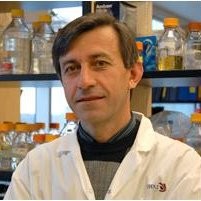
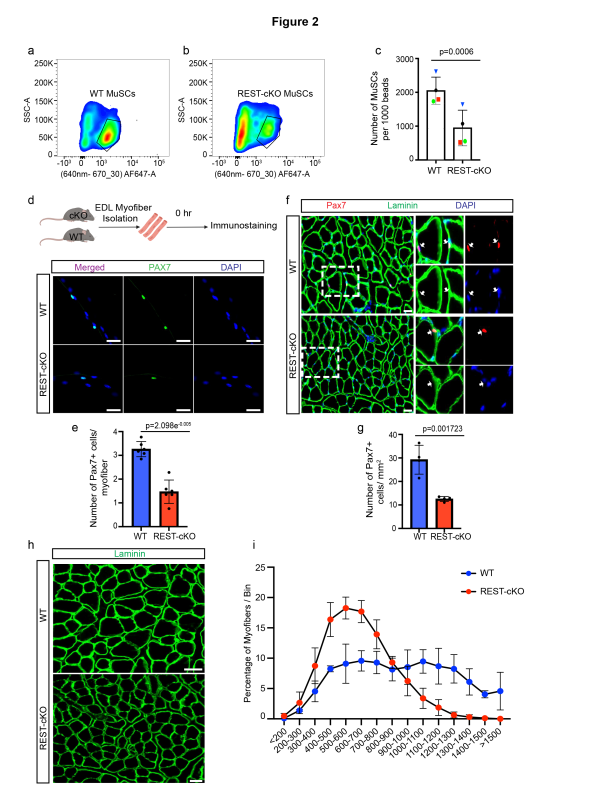
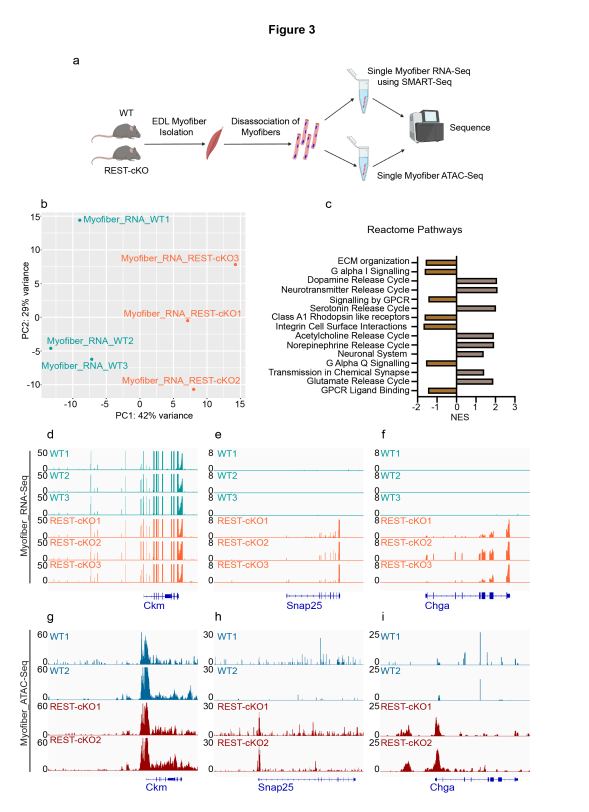
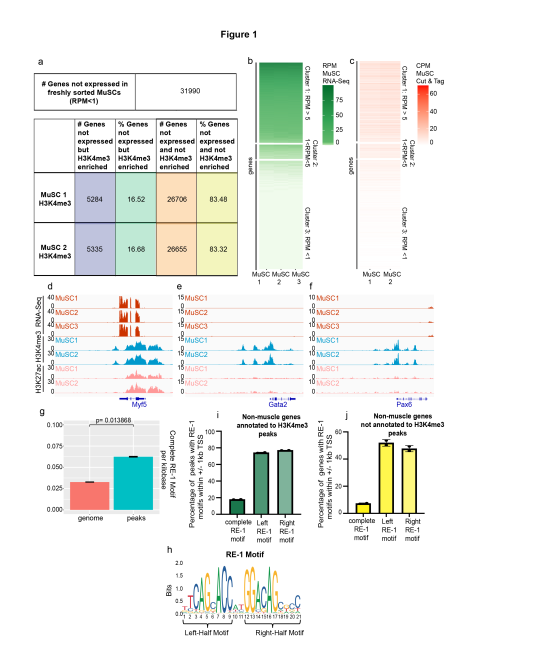
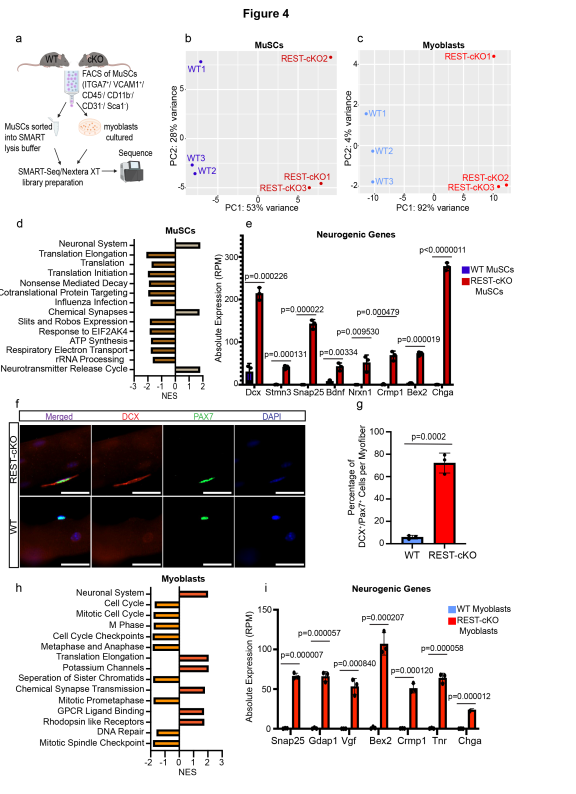
| Published | May 30th, 2024 |
| Address | https://doi.org/10.21203/rs.3.rs-4396883/v1 |
| Authors | Vahab Soleimani, Korin Sahinyan, Darren Blackburn, Marie-Michelle Simon, Felicia Lazure, Tony Kwan, David Wilson, Julia von Maltzahn, Yasuhiro Yamada, Arezu Jahani-Asl, Guillaume Bourque, Michael Rudnicki |














